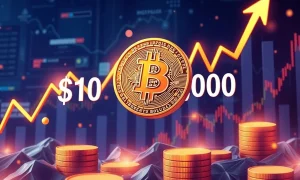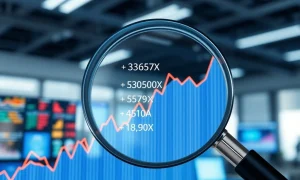Investors worldwide are growing increasingly concerned about a potential stock market bubble as valuations reach unprecedented levels. Market analysts and financial experts are sounding alarms about concerning patterns that mirror previous market excesses. This comprehensive analysis examines the compelling evidence suggesting we may be approaching a dangerous market peak.
Understanding the Stock Market Bubble Phenomenon
Market bubbles occur when asset prices rise dramatically above their intrinsic value. Historically, these bubbles eventually burst, causing significant financial losses. Currently, several indicators suggest we might be witnessing similar conditions. Many investors recall the dot-com bubble and 2008 financial crisis patterns.
Key Indicators Pointing to a Stock Market Bubble
Several metrics currently flash warning signs about market conditions. These indicators include:
- Elevated P/E ratios across major indices
- Record margin debt levels among investors
- Speculative trading activity in meme stocks and cryptocurrencies
- IPO valuations disconnected from fundamentals
Historical Parallels to Current Market Conditions
Market historians note striking similarities between current conditions and previous bubbles. The 1999 dot-com bubble featured similar investor euphoria and valuation excesses. However, today’s market differs in some aspects, including different monetary policies and global economic conditions.
Expert Opinions on the Stock Market Bubble Debate
Financial experts remain divided about current market conditions. Some prominent investors have publicly expressed concerns about valuations. Others argue that low interest rates justify higher valuations. The debate continues among economists and market strategists worldwide.
Potential Triggers for a Market Correction
Several factors could potentially deflate current market valuations. These include interest rate changes, inflation concerns, and geopolitical events. Market participants closely monitor Federal Reserve policies and economic indicators.
Protecting Investments During Market Uncertainty
Financial advisors recommend several strategies for navigating potential market turbulence. These include portfolio diversification and risk management approaches. Investors should consider their individual risk tolerance and investment horizons.
Frequently Asked Questions (FAQs)
What exactly defines a stock market bubble?
A stock market bubble occurs when stock prices rise significantly above their fundamental value, driven by investor enthusiasm rather than underlying financial performance.
How can investors identify bubble conditions?
Investors can watch for excessive valuations, high margin debt levels, and widespread speculative behavior as potential bubble indicators.
What typically happens after a bubble bursts?
After a bubble bursts, markets typically experience significant declines as prices return to more reasonable valuation levels based on fundamentals.
Are all market experts concerned about a bubble?
No, opinions vary among experts. Some believe current valuations are justified by low interest rates and economic conditions, while others see clear bubble characteristics.
How long can market bubbles typically last?
Market bubbles can persist for months or even years before correcting, making timing the market extremely difficult for investors.
What protective measures can investors take?
Investors can maintain diversified portfolios, avoid excessive leverage, and focus on long-term investment strategies rather than short-term speculation.








